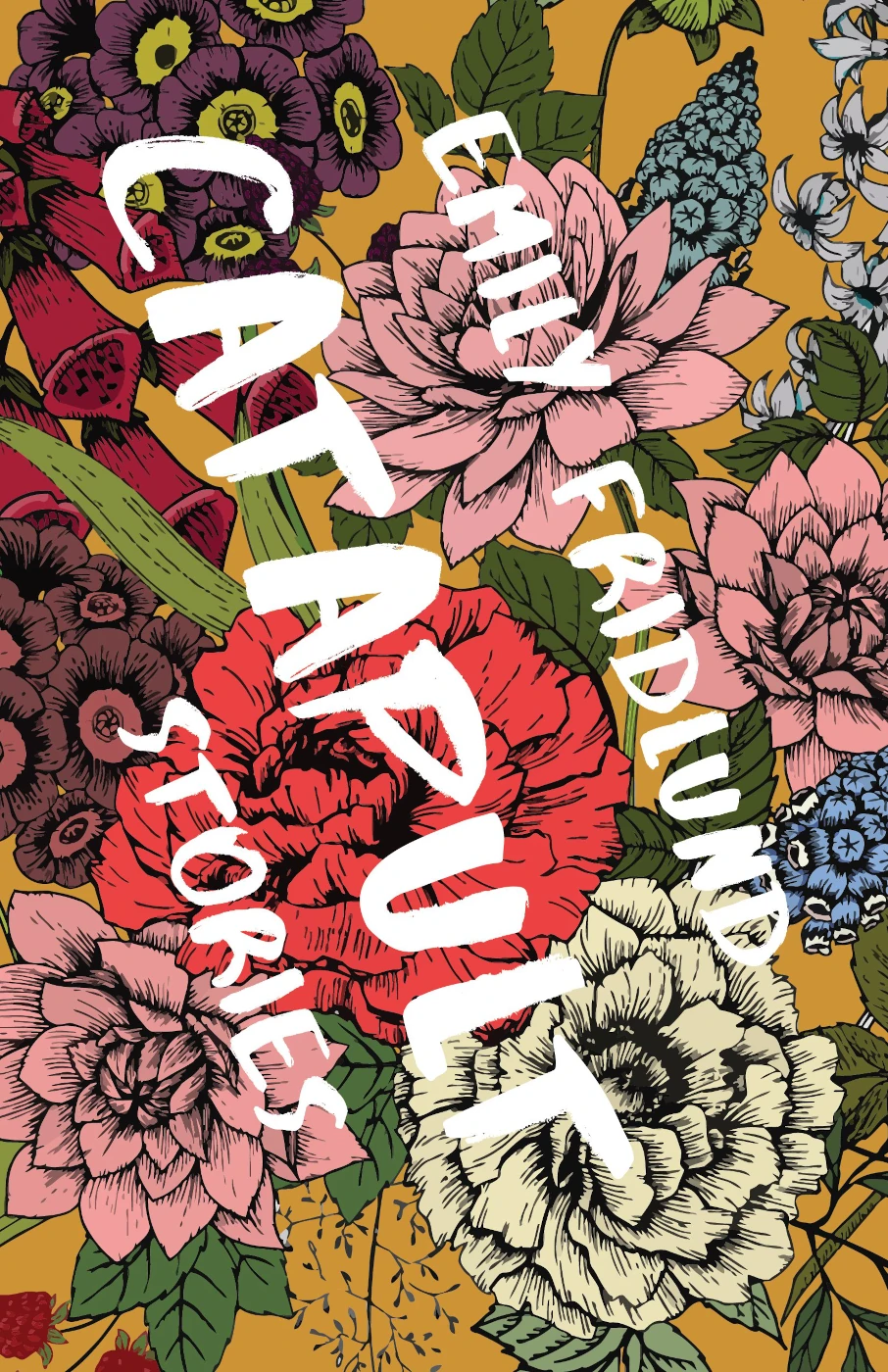
Catapult, by Emily Fridlund
Words By Rebecca Hannigan
It’s not often you find a collection of stories that’s sharp and surprising and familiar all at once—it’s like entering a room full of family members with whom you are close but have not seen in years. Emily Fridlund takes the time to step inside the minds of these familial-yet-foreign characters, and it is a pleasure. Each character is equal parts eccentric and ordinary, and Fridlund’s concise prose allows the reader to enjoy these traits equally.
Despite the familiarity, misunderstandings define these stories. In the first, a wife gives her husband an American flag before she leaves him, telling him he’s “always wanted something to hang from the porch.” In the last, a man gives his granddaughter a model of the Liberty Bell because he was always, as she says, “mistaking my curiosity about him, my questions about his soldier days, for patriotism.”
These false impressions are met with passivity by Fridlund’s characters. In “Here, Still,” two friends have long phone conversations which are “intensified by infrequency.” The nature of this friendship is characterized by the story’s first line: “I do not like her very much, Lora, my best friend.” The mixed feelings throughout the collection expose latent truths within relationships that are usually easier left concealed than expressed.
Similarly, the characters articulate the otherwise unspoken difficulties of trying to meet or match the expectations of others. This struggle seems to be at the heart of the conflict of these stories. In “Lock Jaw,” when the speaker Craig searches for his lost dog, he bikes around, taking note of the neighbors who “hold their shovels in the air like weapons,” then explains, “I call for the dog, which reassures everyone. The neighbors get worried when they see a grown man alone riding around on his bike.” Later, he recounts a time when his father told him, “But that’s how you get ahead! By lowering people’s expectations!”
Along with expectations, Fridlund’s characters invite us to consider the differences between desired outcomes and actual results. The main character in “Time Difference” admits to being “proud of her good intentions and worried at the same time that they’re just that, with no underlying fact of generosity.” In “Lake Arcturus Lodge,” a woman and her husband open a lodge, and she muses, “What is logic, after all, but the way the mind takes control of facts and arranges them to suit its own interest?”
Each character in Catapult strives to maintain an appearance that’s socially acceptable. The protagonist of the title story meets her Christian boyfriend’s parents, who ask her to read a passage from a book about Jesus. She considers refusing, but obliges, admitting: “I knew as well as anyone how to look like I was good, so I took the book and smiled it down.”
Instead of having sex, the girl explains, she and her boyfriend build a catapult in the grass, from which they fling “the last Lego man in the Dixie cup.” The catapult distracts them from their own changing, hormonally-charged bodies, and from “the strained, shameful drudgery of coming up with things to say.” Outgrowing the catapult, they build a raft, then draft plans for a time machine. Their affection for one another is surprisingly profound, and the young girl articulates a feeling most adults deign to express, a moment when she “saw that what we did and what we said were two different things, two sides of a wheel that went around and around and would never meet.”
Most characters in this story collection experience such circuitous, almost torturous, relationships which stretch out on separate planes: parallel to each other, but never touching. Individually, this might seem like more than anyone could handle. However, there is something comforting in how the stories express that nobody is alone in these feelings. If the disconnect is shared, then maybe there’s connection after all. In this way, Fridlund connects the stories in Catapult, as each one is full of intimacy and surprise and abandon. These stories contain tension and release, like something held back before being let go.